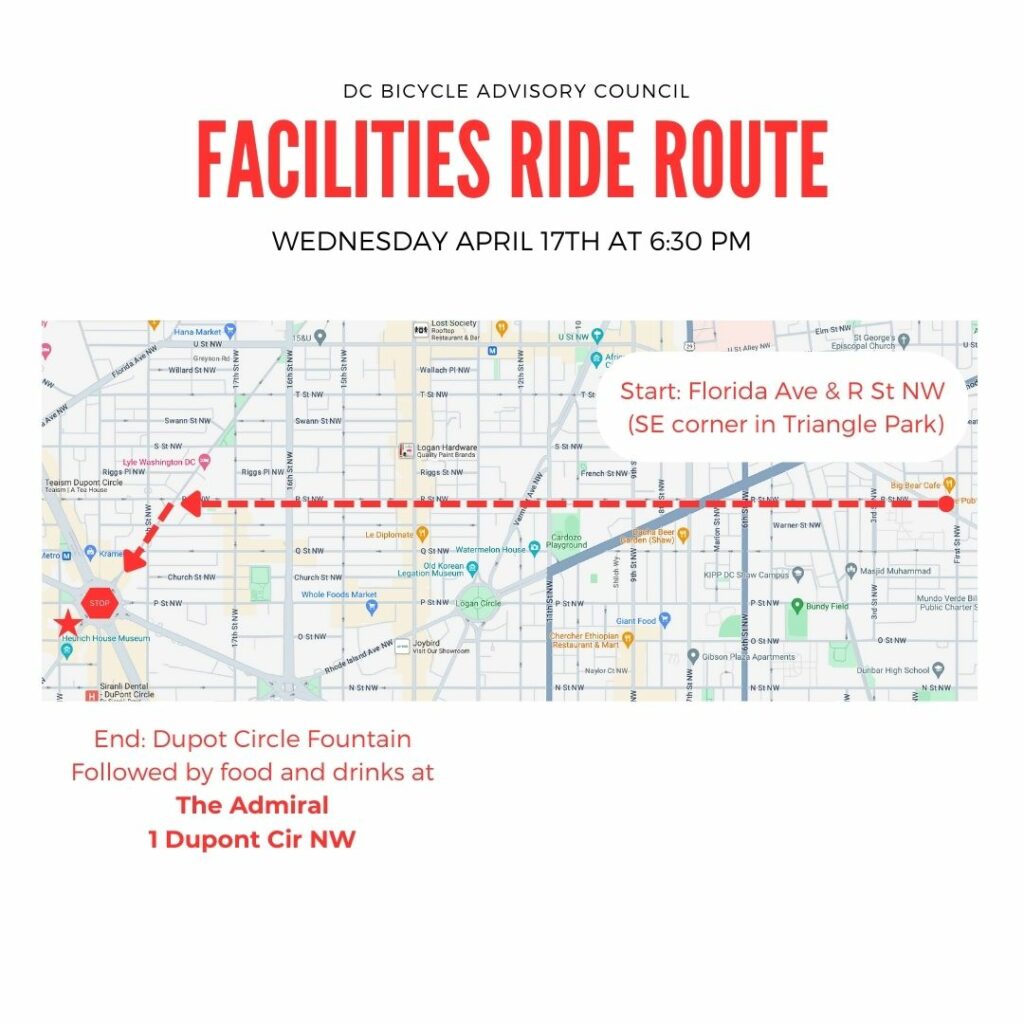Wed
17
Apr
DC Bicycle Advisory Council Ride of Q & R Streets
Wednesday, April 17, 2024, 6:30 PM
Florida Ave & R St NW (SE Corner Triangle Park)
Ride
The Facilities Committee of the DC Bicycle Advisory Council is hosting a ride on Wednesday, April 17th. Hope to see you there!
Event details:
Date: Wednesday, April 17th
Start: Florida Ave and R St NW – SE corner triangle park
Finish: Dupont Circle Fountain
Followed by: Drinks at The Admiral – 1 Dupont Cir NW

You must be logged in to post a comment.